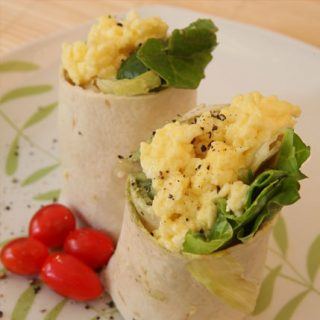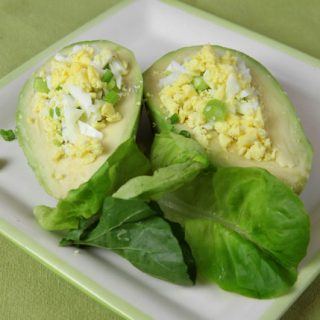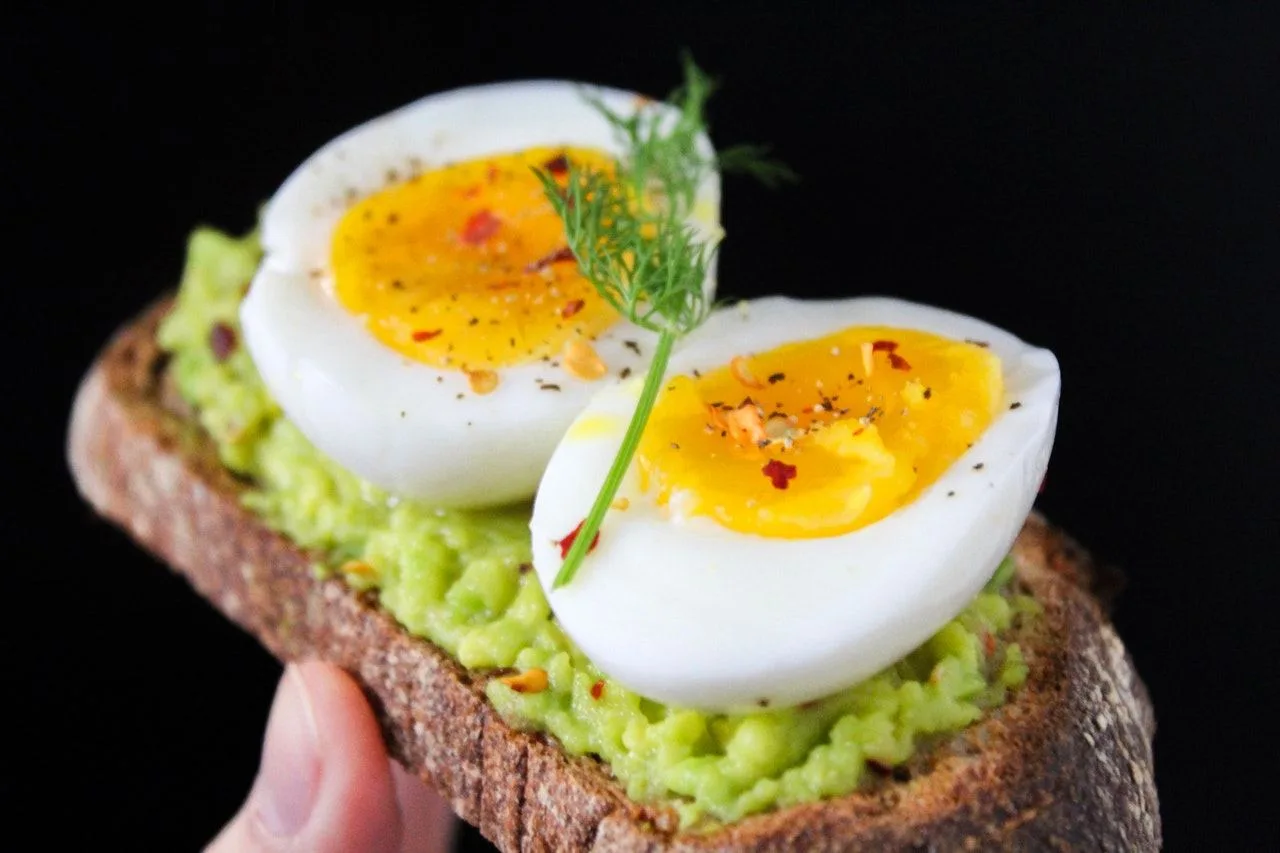If there’s one breakfast food that we should all be eating, then it’s definitely eggs. Not only are they incredibly versatile, but they’re also highly nutritious. Rich in choline, vitamin D and B12 as well as iodine, all while containing all nine essential amino acids, eggs should really be part of your diet. The fact is that they’re truly a longevity-boosting food and we should be eating more of them.
But what about cholesterol?
Yes, eggs are high in cholesterol and as we know, high cholesterol is never a good thing. Now, as eggs are high in cholesterol, you might want to throw out your entire carton but it’s a little more nuanced.
For one, Harvard TH Chan School shared that “the biggest influence on blood cholesterol level is the mix of fats and carbohydrates in your diet—not the amount of cholesterol you eat from food” (1).
Additionally, a Harvard study published in 2020 revealed that eating an egg a day does not raise your risk for heart disease, which is something that previous studies have believed to happen.
“Recent studies reignited the debate on this controversial topic, but our study provides compelling evidence supporting the lack of an appreciable association between moderate egg consumption and cardiovascular disease,” – Jean-Philippe Drouin-Chartier, 2020
The same study also concluded that unless the participants had a previously existing condition, like type 2 diabetes, then eating an egg a day did not influence their risk for cardiovascular disease.
Now that we’ve concluded that eating eggs in moderation does not raise your risk for heart disease, let’s delve into the different ways that doing so can help your health.
Longevity Benefits of Eating Eggs
1. May help with heart health

Photo by Jenna Hamra from Pexels
As mentioned, eggs contain the nutrient choline and research has found that choline can help break down homocysteine, which is an amino acid that has been linked to heart disease (2).
Additionally, clinical trials have shown that eggs can help to balance the ratio of HDL and LDL cholesterol, which is important for heart health.
2. Protects brain health
Once again touching on the importance of choline, the nutrient is also great for brain health. This is because choline is needed for the formation of cell membranes and for brain function. What’s more, an animal study published in Molecular Psychiatry found that choline may also help fight Alzheimer’s.
4. Helps with weight management
Eggs are high-protein foods and because of this, they are incredibly filling. Thanks to their effects on satiety, eggs can help reduce one’s calorie intake.
One study had 30 overweight women consume eggs instead of bagels for breakfast. According to the findings, the increased satiety made them eat fewer calories over the next 36 hours, which could potentially translate to better weight management.
5. Helps build stronger muscles
As mentioned, eggs are a complete protein, as they contain all 9 essential amino acids, which can help rebuild stronger muscles and tissues.
One amino acid that is great for muscle gain is leucine and according to research, the supplementation of leucine, in conjunction with resistance exercise training, may help to promote and improve muscle growth.

Photo by Dana Tentis from Pexels
6. Healthier skin
It’s not only eye health that lutein and zeaxanthin can boost as they could be the anti-aging ingredients that your skin needs.
Being carotenoids, lutein and zeaxanthin contain antioxidant properties that protect against the oxidative damage that the sun can cause, and in doing so, protect against premature aging and dull skin tone.
Egg-cellent recipes
If you’re looking to include more eggs in your diet, but are tired of the regular scrambled eggs, then enjoy these delicious and fun recipes, courtesy of the South African Poultry Association.
Scrambled Egg Wrap
Serves: 1 or as required 
Cooking Time: 5 -10 minutes
Hint: A fun, healthy dish for young children and teenagers.
Ingredients:
- 1 tortilla wrap
- fresh lettuce leaves
- ½ avocado, peeled and sliced
- 2 eggs combined with ½ cup milk, softly scrambled.
- salt and pepper, to taste
Method:
- Line the tortilla with lettuce leaves and top with avocado slices and scrambled egg.
- Season with salt and pepper.
- Wrap the tortillas securely and serve.
Avocado and Egg Dish
 Serves:1 or as required
Serves:1 or as required
Cooking Time: 15 minutes
Ingredients:
- 1 ripe avocado
- juice of ½ lemon
- 1 hard-boiled egg
- 1 spring onion, sliced
- drizzle olive oil
- salt and pepper, to taste
- lettuce leaves, optional
Method:
- Slice the avocado in half and drizzle with lemon juice to prevent discolouring. Sprinkle the cavities with salt and pepper
- Separate the hard-boiled yolks and whites of the eggs and chop finely.
- Mix the chopped egg whites with the spring onion. Fill the avocado cavities with the chopped egg white and sprinkle the chopped yolk on top. Drizzle with olive oil. Season with salt and pepper.
- Serve on a bed of lettuce leaves, optional.
References
1. https://www.hsph.harvard.edu/nutritionsource/what-should-you-eat/fats-and-cholesterol/cholesterol/
2. Zhong VW, Van Horn L, Cornelis MC, et al. Associations of Dietary Cholesterol or Egg Consumption With Incident Cardiovascular Disease and Mortality. JAMA. 2019;321(11):1081–1095. doi:10.1001/jama.2019.1572
3. Ganguly, P., & Alam, S. F. (2015). Role of homocysteine in the development of cardiovascular disease. Nutrition journal, 14, 6. https://doi.org/10.1186/1475-2891-14-6
4. Blesso C. N. (2015). Egg phospholipids and cardiovascular health. Nutrients, 7(4), 2731–2747. https://doi.org/10.3390/nu7042731
5. Velazquez, R., Ferreira, E., Winslow, W. et al. (2020). Maternal choline supplementation ameliorates Alzheimer’s disease pathology by reducing brain homocysteine levels across multiple generations. Mol Psychiatry 25, 2620–2629. https://doi.org/10.1038/s41380-018-0322-z
6. Jillon S. Vander Wal, Jorene M. Marth, Pramod Khosla, K-L Catherine Jen & Nikhil V. Dhurandhar (FACN) (2005) Short-Term Effect of Eggs on Satiety in Overweight and Obese Subjects, Journal of the American College of Nutrition, 24:6, 510-515, DOI: 10.1080/07315724.2005.10719497
7. Lim, C. H., Gil, J. H., Quan, H., Viet, D. H., Kim, C. K.. (2018). Effect of 8-week leucine supplementation and resistance exercise training on muscle hypertrophy and satellite cell activation in rats. Physiol Rep, 6 ( 12), e13725, https://doi.org/10.14814/phy2.13725




![women [longevity live]](https://longevitylive.com/wp-content/uploads/2020/01/photo-of-women-walking-down-the-street-1116984-100x100.jpg)










